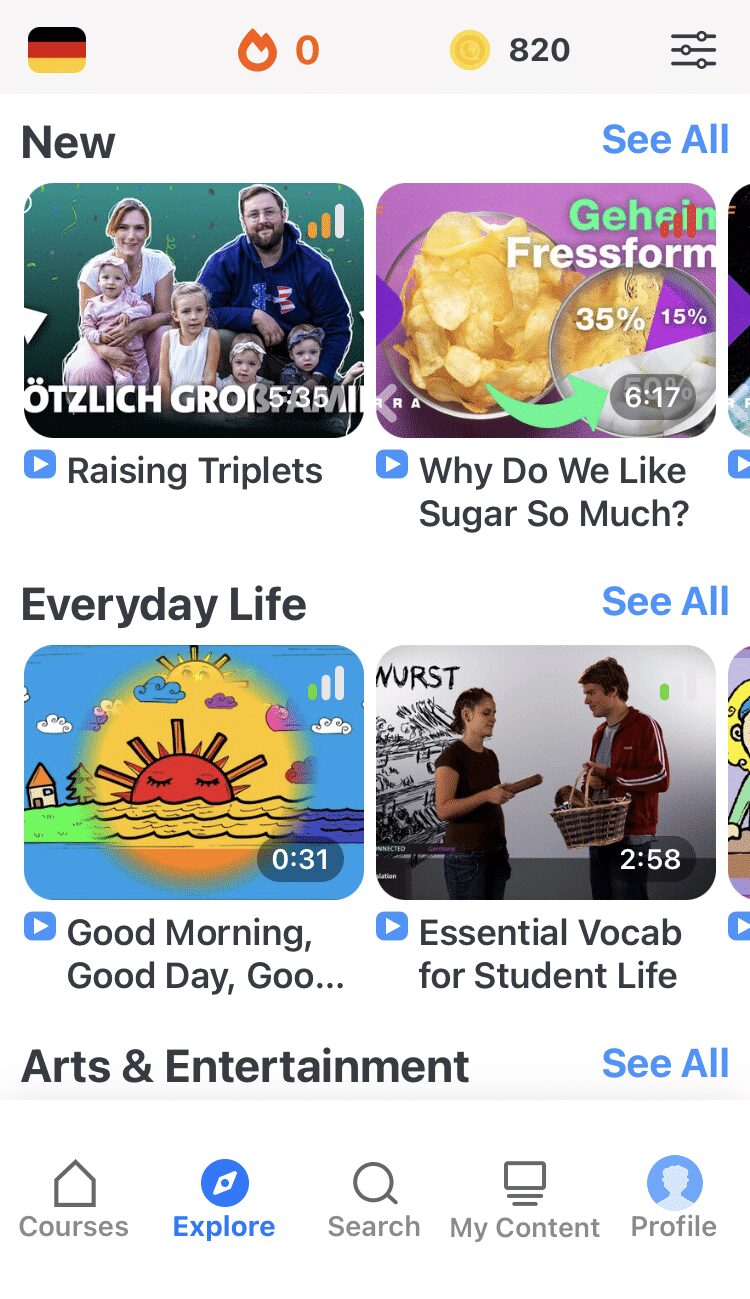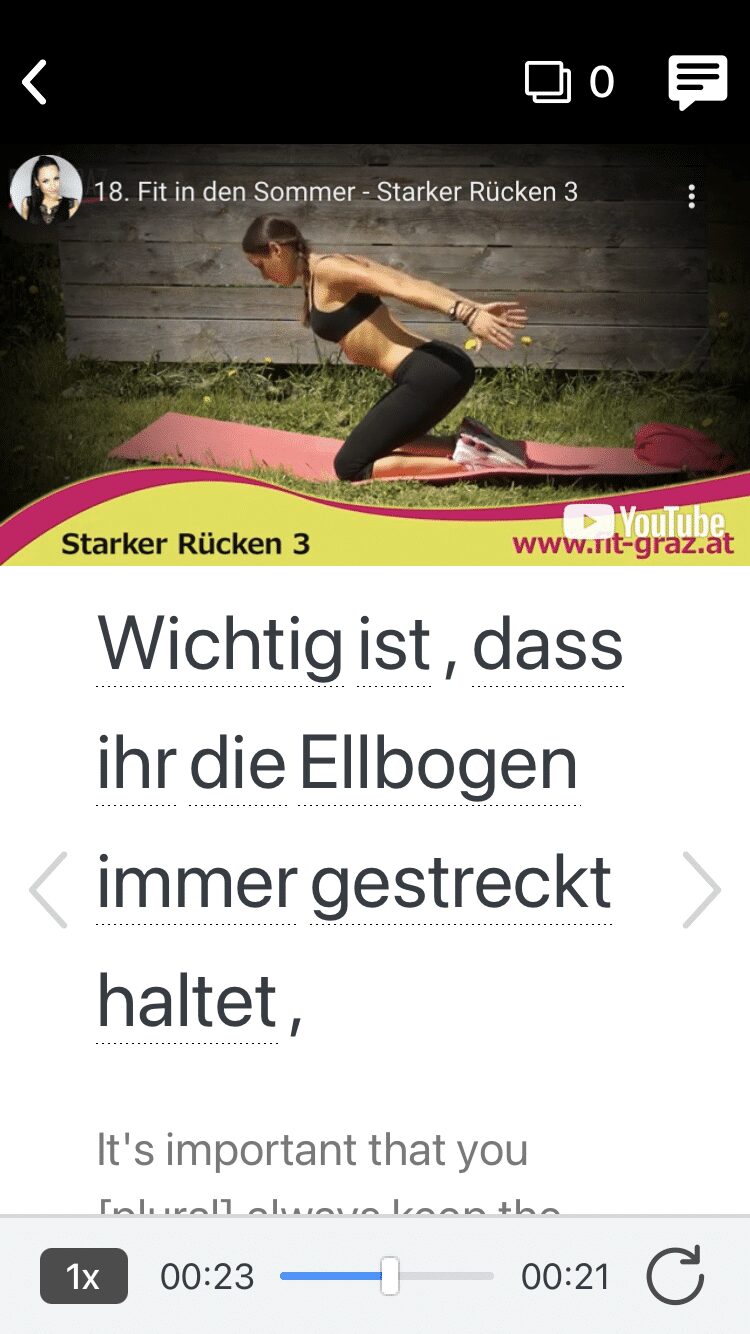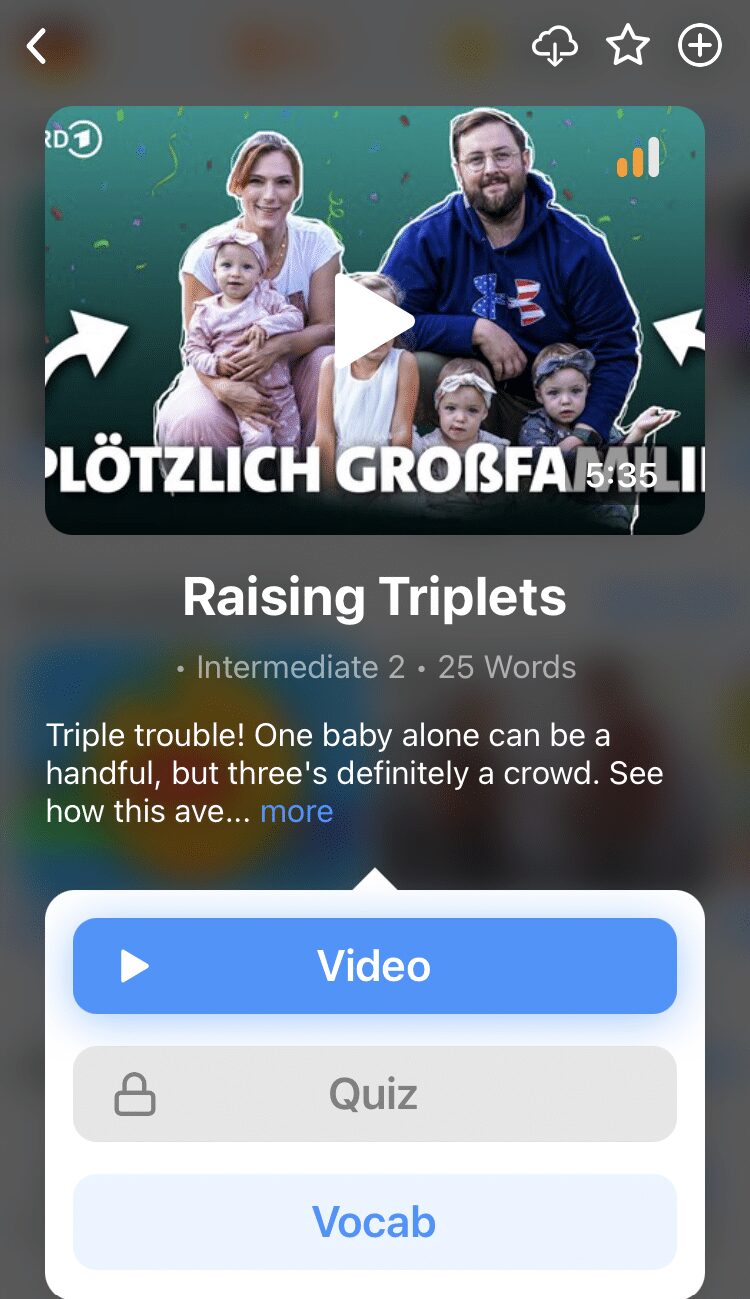39 Austrian German Phrases and Slang

Austrians have their own German phrases and slang for a wide range of situations, from saying hello and goodbye to drinking off a hangover.
And while you can certainly get by in Austria with basic German words, nothing makes an Austrian happier than a foreigner making an effort to understand the local language.
In this post, we’ll give you tons of Austrian slang and phrases, with equivalents provided in both standard German and English.
Download: This blog post is available as a convenient and portable PDF that you can take anywhere. Click here to get a copy. (Download)
Are German and Austrian Two Different Languages?
The renowned Austrian writer and journalist Karl Kraus used to say:
Was die Deutschen und Österreicher trennt ist ihre gemeinsame Sprache.
What distinguishes the Germans from the Austrians is their common language.
Germany and Austria share the same language, but with fundamental differences in the way they use it.
The Austrian Hochdeutsch (“high” German) used in writing and formal contexts is fairly similar to the German Hochdeutsch, however, there are huge differences in the way German is spoken in everyday life.
The so-called Mundart (vernacular) is strong and exists in many different forms, varying from region to region. Many words are used exclusively in spoken Austrian and therefore there’s no set way to spell them.
If you’re an advanced German speaker, you may even notice that the spirit of the Austrian language is different: Germans are very direct and straight to the point, while Austrians tend to sound a bit more vague and ambiguous.
Austrian German is also a bit more ironic, which occasionally leads to small misunderstandings–Germans sometimes accuse Austrians of being inappropriate and Austrians criticize their neighbors’ lack of humor.
Austrian Greetings and Goodbyes
| Austrian German | German | English |
|---|---|---|
| Guten Morgen | Guten Morgen | Good morning |
| Grüss Gott | Guten Tag
Abend | Good afternoon / evening |
| Servus
Hallo Grüss dich | Hallo | Hello (informal) |
| Auf Wiedersehen
Auf Wiederschauen | Auf Wiedersehen | Goodbye |
| Tschüss, Priat di | Tschüss | Bye (informal) |
| Pfiat di | Tschüss | Bye (informal) |
Before 10 a.m., we usually say Guten Morgen—the same as in Germany. This can be shortened to Morgen and will often be pronounced as Moagn .
For the rest of the day, we use Grüss Gott, which translates into “greet God.” The German Guten Tag and Guten Abend aren’t too common. In an informal context, you can always say Hallo, Servus or Grüss dich.
The formal version of goodbye is Auf Wiedersehen or Auf Wiederschauen. Among friends and family, it’s common to use Tschüss and Pfiat di.
Austrian Culinary Phrases
| Austrian German | German | English |
|---|---|---|
| Gasthaus
Restaurant | Gasthaus
Restaurant | Restaurant |
| Fritattensuppe | Flädlisuppe | Soup with sliced pancakes |
| Wiener Schnitzel | Wiener Schnitzel | Viennese Schnitzel |
| Gastgarten | Biergarten | Beer garden |
| Jause | Imbiss
Snack | Snack |
| Eine Halbe Bier
A Hoibe | Grosses Bier | Large beer |
| Ein Seiterl Bier
A Seidl | Kleines Bier | Small beer |
| Reparaturseidl | (No German equivalent) | Small beer that should cure your hangover |
| Topfenstrudel mit Schlagobers | Quarkstrudel mit Sahne | Cheesecake with whipped cream |
| Palatschinken | Pfannkuchen | Pancakes |
| Häferlkaffee | Kaffee mit Milch | Coffee with milk |
| Kaiserschmarrn | Kaiserschmarrn | Emperor's mess; shredded pancake |
| Kasnocken | Käsespätzle | Typical Austrian dish similar to pasta |
| G’röste Knödel mit Ei | Geröstete Knödel mit Ei | Fried dumplings with egg |
| Almhütte | Almhütte | Chalet in the mountains |
| Sich ausrasten | Sich ausruhen | To relax |
Austria’s gastronomic vocabulary is endless. Whereas a Gasthaus serves mostly local and traditional foods, such as Fritattensuppe and Wienerschnitzel, a Restaurant is a bit more elegant and offers a broader variety of food.
You can also enjoy Jause and some beers at a Gastgarten, the Austrian form of the German Biergarten. One major difference to Germany is the way Austrians order their beer. Eine Halbe Bier, or in dialect A Hoibe, stands for “half a liter of beer” and is equivalent to the German Grosses Bier.
Try to say: I hätt gern a Hoibe, bitte! (I’d like a large beer, please!).
A small beer is called a Seidel or Seiterl. Reperaturseidl is a funny Austrian word, describing a small beer consumed after a long night out to prevent hangovers.
Austrian desserts such as Topfenstrudel mit Schlagobers or Palatschinken are world-famous and sometimes even replace lunch. You should try them together with a Viennese Häferlkaffee.
As far as cultural experiences go, they don’t come more authentic than an excursion to an Austrian Almhütte where you can enjoy some traditional foods such as Kaiserschmarrn, Kasnocken or G’röste Knödel mit Ei. The Almhütte is a great place to relax after a long hike.
Austrians would say Ein Ort zum Ausrasten (A place to Ausrasten.) Be careful! Whereas ausrasten means relax or recharge for Austrians, Germans would translate it to “getting mad.”
Common Austrian Slang
Here are some more expressions that are uniquely Austrian:
| Austrian Slang | Literal Translation | Meaning |
|---|---|---|
| Bist du deppert? | Are you stupid? | Are you crazy? |
| Leiwand | Canvas / fabric (from Leinwand) | Awesome, cool |
| Hüft's nix schodt's nix. | If it doesn't help, it doesn't harm. | You should try! |
| Da Gscheidere gibt noch. | The smarter one gives in. | Stop being stubborn! |
| Die Oaschkortn ziagn | To pull the "butt card" | To have bad luck |
| Geh, hear auf! | Go, stop! | Stop it! |
| Oida | Older person, oldie | Dude |
| Ungustl | Unappetizing (from ungustiös ) | A very unpleasant, unsympathetic person |
| Kaprize | Whim, caprice | A creative or funny notion or mood |
| Krass | Stark / extreme / blatant | Extremes in either a positive or negative way |
| Na geh | Well, go | Oh no! / Damn it! |
| Owezara | Down-puller | Someone who avoids work |
| Wahnsinn | Madness, insanity | Something that's mind-blowing, awesome, crazy or random |
| Grindig | Nasty | Yuck / Ew |
| Jausen / Jause | To grab a snack / Snack | To grab a snack / Snack |
| Damma wos | Let's see what | See you around / Let's get going |
| Blunzn / Des is mir Blunzn | Blood sausage / That's blood sausage to me | I don’t care |
Resources to Improve Your Austrian German
For starters, check out the basics of German as they’ll turn out very helpful for your Austrian studies.
Let’s move on to some tips on how to fine-tune your ear to the Austrian dialect:
Listen to Austrian Music
Search for Austrian music on YouTube, look up the lyrics and soon you’ll be singing along with Austropop stars like Rainhard Fendrich or STS.
You can also check out Austrian radio channels. Most of them speak very clear Austrian German without too much dialect. The most popular ones are Hitradio Ö3 and Kronehit.
Watch Austrian TV and Videos
Is there a better way to train your listening skills than by watching a movie or a TV show? You might want to put on the subtitles, especially with content that can be tricky to understand.
Here are my video content recommendations for you:
- Ulrich Seidl’s “Paradise” trilogy (which consists of the movies “Paradise: Love”, “Paradise: Faith” and “Paradise: Hope”) portrays the story of those marginalized by Austrian society in a frighteningly realistic way. It’s a typical example of Austrian cinema in terms of pushing boundaries and criticizing social issues in a way that Hollywood wouldn’t dare to do.
- If you’re interested in the history of the Austrian monarchy, check out the “Sissi” collection. These movies are old but gold, and tell the story of the Austrian empress Sissi, who became a cult figure after being assassinated in 1898.
- “Kommissar Rex” is one of Austria’s favorite TV shows and tells the story of a cop who teams up with a German Shepherd to solve crimes around Vienna.
- For more advanced speakers, watching an Austrian stand-up comedian such as Alfred Dorfer is a great way to get a feeling for “real Austrian.” In order to fully understand stand-up comics, you’ll need some background knowledge of Austrian politics and social issues.
For German-language media that already comes with study tools, there’s also FluentU.
FluentU takes authentic videos—like music videos, movie trailers, news and inspiring talks—and turns them into personalized language learning lessons.
You can try FluentU for free for 2 weeks. Check out the website or download the iOS app or Android app.
P.S. Click here to take advantage of our current sale! (Expires at the end of this month.)
It features authentic video clips from both Austria and Germany, all with interactive subtitles that unpack the meaning of each word. You’ll pick up colloquial German, with slang and modern buzzwords included.
Look for Opportunities to Practice
Once in Austria, make sure you don’t miss out on any opportunities to practice speaking. Every conversation will help you polish your pronunciation and take a step closer to fluency, so don’t be shy!
Consider staying with locals using platforms such as Airbnb or Couchsurfing. If you plan on staying longer, you can check out some Austrian language immersion programs.
If you’re not currently lucky enough to be exploring Austria, you can find a language exchange partner online! Search for Austrian locals on HelloTalk or MyLanguageExchange.com.
Learning any new language takes patience and dedication, but if you practice on a daily basis (and start planning that Austrian vacation), it won’t be long until you sound like a local!
Good luck!
Download: This blog post is available as a convenient and portable PDF that you can take anywhere. Click here to get a copy. (Download)
And One More Thing...
Want to know the key to learning German effectively?
It's using the right content and tools, like FluentU has to offer! Browse hundreds of videos, take endless quizzes and master the German language faster than you've ever imagine!
Watching a fun video, but having trouble understanding it? FluentU brings native videos within reach with interactive subtitles.
You can tap on any word to look it up instantly. Every definition has examples that have been written to help you understand how the word is used. If you see an interesting word you don't know, you can add it to a vocabulary list.
And FluentU isn't just for watching videos. It's a complete platform for learning. It's designed to effectively teach you all the vocabulary from any video. Swipe left or right to see more examples of the word you're on.
The best part is that FluentU keeps track of the vocabulary that you're learning, and gives you extra practice with difficult words. It'll even remind you when it’s time to review what you’ve learned.
Start using the FluentU website on your computer or tablet or, better yet, download the FluentU app from the iTunes or Google Play store. Click here to take advantage of our current sale! (Expires at the end of this month.)












